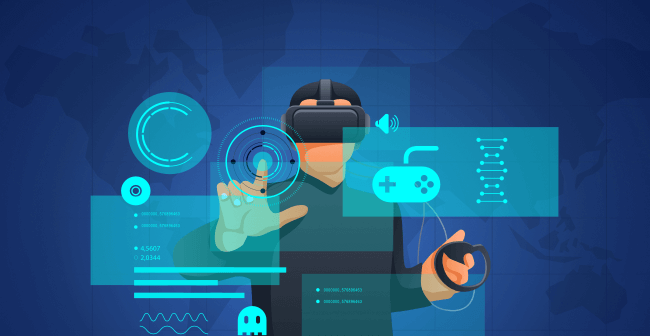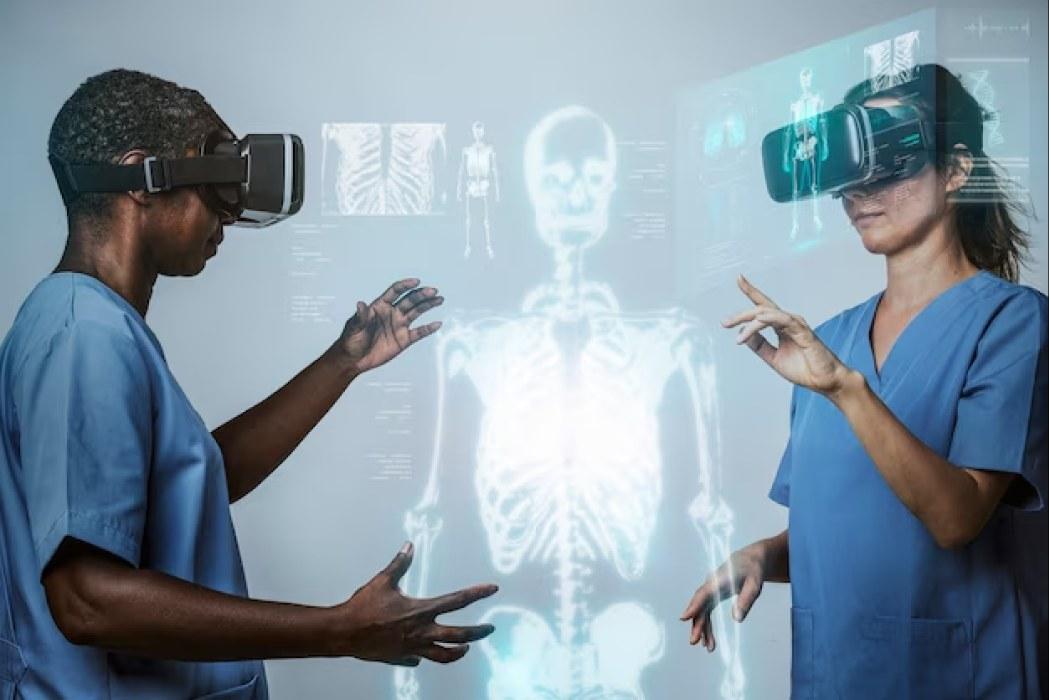In today's constantly evolving world, making sure that each customer has a special and personalized experience is very important for most businesses. Whether it's shopping online or having social media interactions that feel just right, people want experiences that fit their own needs.
This is where machine learning (ML) personalization comes in!
ML personalization is an excellent solution for delivering customized user experiences at scale. It offers an accurate way to achieve tailored customer experiences by leveraging advanced algorithms.
In this post, we will explore ML personalization in more detail, including how machine learning tailors customer experiences, examples of ML personalization, and more.
What is ML Personalization?
Personalization can be described as a method of suggesting the right set of products, content, or items to the right user. ML personalization specifically uses advanced technology to personalize customer experiences that feel unique to each individual.
The machine learning algorithm here analyses large data sets, establishing patterns for predicting users' future behavior. The insights are then applied to customizing content and offering recommendations to different users.
ML personalization enhances user experience by offering user-relevant content, products, and services. This can lead to increased sales, higher user engagement, and improved customer loyalty.
Various Personalization Strategies with AI and ML
In this section, we will explore some of the personalization strategies that use AI and ML algorithms, including:
- Customer Data Collection and Analysis
Machine learning can process massive amounts of customer data to identify different patterns and trends. This data can include everything from purchase history and demographic information to customer online behavior.
- Real-Time Personalization
ML and AI technologies offer personalization by adjusting messaging and offers based on specific customers' actions in real time. For instance, an ecommerce website can recommend different products based on a website visitor's recent clicks.
- Advanced AI-Powered Customer Segmentation
Machine Learning can enhance customer experience by grouping customers into various segments based on different factors. This allows for more personalized or tailored marketing campaigns and offers. Modern approaches like adaptive segmentation further refine this by continuously updating segments in real-time as user behavior evolves, enabling more accurate targeting and engagement.
- Hyper-Personalization
This strategy uses advanced data analytics to offer clients more customized experiences. It leverages data from multiple sources, such as behavioral, demographic, and transactional data. By integrating Enhanced Customer Experience, businesses can take this a step further, ensuring every interaction is fine-tuned to individual preferences, boosting satisfaction and loyalty.
Techniques Used for Machine Learning Personalization
There are several techniques that machine learning uses for better customer experiences and enhanced personalization. Among these are:
- Association
The association is a rule-based machine learning methodology for uncovering interesting relations between variables in large databases. This ML methodology is a critical tool for building recommendation engines.
- Regression Analysis
Regression is a supervised machine learning methodology for defining relationships between a dependent (target) and independent (predictor) variable. The technique can be used to forecast the outcomes when independent variables change.
- Clustering
Clustering is a technique in unsupervised ML algorithms. It analyzes unlabeled data, segregates it into different groups, and assigns it to multiple clusters.
- Deep Learning
From natural language processing (NLP) to segmenting audiences for mobile advertising, deep learning is an important ML methodology that combines various methods to analyze data and offer deeper insight.
- Markov Chains
Markov chains are a very common way to model random processes using statistics. This approach can describe a possible sequence of events based only on the processes' present state.
Top AI and ML Tools and Technologies
Artificial intelligence and machine learning are changing industries by allowing more intelligent, streamlined processes. From data analysis to automation, AI/ML tools and technologies are helping organizations solve complex problems, innovate faster, and unlock new opportunities.
Below are some of the most elite tools in artificial intelligence and machine learning that help shape the future of technology.
1. PyTorch

PyTorch is an open-source ML library designed in Python and based on the Torch framework. Developed by Facebook's AI research team, it is widely applied to NLP, computer vision, and generative models. PyTorch is highly valued for its intuitive and flexible nature and is excellent for developing and training ML models.
G2 ratings: 4.6/5
2. Tensorflow

It is another popular ML technology developed by the Google Brain team as an open-source software library that excels in dataflow and differentiable programming. The technology is widely used for deep learning and ML applications, such as neural networks.
G2 ratings: 4.5/5
3. Amazon Sagemaker

Amazon SageMaker is another popular cloud ML platform specially designed to simplify and streamline the end-to-end ML workflow. The tool enables developers to quickly and easily build, train, and deploy machine learning models.
G2 ratings: 4.2/5
4. Azure Machine Learning

Azure Machine Learning by Microsoft is a fully managed and scalable cloud-based machine learning technology. It helps create, publish, and oversee several machine learning models. It is a multi-purpose cloud service for machine learning tasks, allowing for significant variations in building and deploying models.
G2 ratings: 4.3/5
Advantages of Personalization with ML
There are several advantages of bringing in personalization with ML, including:
- Higher Customer Engagement
Personalization using AI and ML technology can help businesses create more relevant ans tailored interactions, thus increasing customer engagement manifolds. When customers get offers as per their specific interests, the chances of them interacting and engaging with the business increase, therefore strengthening loyalty as well.
- Improved Customer Satisfaction
Personalization through ML improves customer satisfaction by offering varied experiences tailored to specific customer preferences to increase long-term retention.
- Optimized Marketing Campaigns
ML is an excellent technology that enables the automation and optimization of marketing offers. Its ability to analyze data and adjust campaigns according to user behavior allows businesses to achieve better business outcomes.
How to Get Started with ML in Personalization

It is important to have a working knowledge of how to start your customization program for effective ML personalization.
Here are some of the generalized steps you can take depending on your market, size, and other similar factors:
Step 1: Keep It Client-Centered
Keep your users' needs at the center and let empathy drive your use of ML to ensure that you’re offering value.
Step 2: Explicit and Contextual
It is equally important to use explicit and contextual rules to personalize experiences based on known facts about a user. Among these are Geo IP addresses or the entry channel into a website.
Step 3: Know Your Rules
Make sure to use personalization across a user's entire web journey. This can take several different forms, personalized search being one excellent example.
Step 4: Start Small
When going ahead with your personalization program, make sure to start small with your machine-learning personalization program.
Step 5: Customize
Finally, it is crucial to customize data after understanding your customers' behavior, preferences and needs and accordingly offering them relevant and customized content/offers.
Real-World Examples of ML Personalization
There are multiple areas in real life where machine learning tailors customer experiences, and this type of personalization can work wonders. Some of these applications are discussed below-
1. Recommendation System
This system filters information and offers customized recommendations to users in various scenarios. It uses ML models and algorithms to offer relevant suggestions based on aspects such as users' past behavior, preferences, etc.
Example: The popular streaming platform Netflix's recommendation engine, powered by ML, is an excellent example of this, with over 80% of the content watched on the platform through personalized suggestions.
2. Tailored News Feed
With machine learning (ML), you can ensure that user's News Feeds show only with content they find as relevant or interesting, without any overly promotional content.
Example: Facebook uses ML to build chatbots and to improve the performance of its search engine. Similar to a search engine, the feed you view is driven by AI such as social media post maker, content maker, etc to provide recommended content and keep you engaged, while minimizing spam.
3. Individual Loyalty Offers, Rewards, and More
ML algorithms can spot patterns of individual user preferences and behaviors by analyzing large volumes of customer data. This allows businesses to personalize their loyalty programs by offering customized rewards, recommendations, and experiences.
Examples: Amazon uses ML personalization to track users' browsing history, buying patterns, etc., and accordingly offers individual loyalty offers and rewards.
Ethical Considerations for Using ML
While ML personalization has many benefits, the technology also presents several challenges and requires a range of ethical considerations.
Among some of these challenges and ethical considerations are the following:
- Privacy of Data
It is important to ensure that user data is collected and used ethically at all times. To do this, companies must implement strong data protection measures to comply with regulations such as the GDPR and CCPA.
- Bias and Fairness
Machine learning algorithms may inadvertently introduce biases into the training data. As such, ML algorithms and models need to be audited and corrected regularly to ensure that they are fair and inclusive.
- Scalability
Businesses also need to ensure that their machine learning infrastructure is equipped to scale and handle increased data to deliver real-time personalization.
The Future of Personalization with AI and ML
Today, machine learning is radically changing the way companies approach personalization.
Multi-channel personalization, generative AI, natural language processing, augmented reality (AR), and many other emerging trends are set to continue to shape the future of ML personalization further in near future.
Leveraging the power of data and advanced machine learning tools and algorithms, businesses can deliver highly personalized experiences that drive greater engagement, customer satisfaction, and loyalty.
As the technology evolves further in the future, there will be endless possibilities for ML personalization, making it an exciting space for businesses and users alike.














Leave a Reply